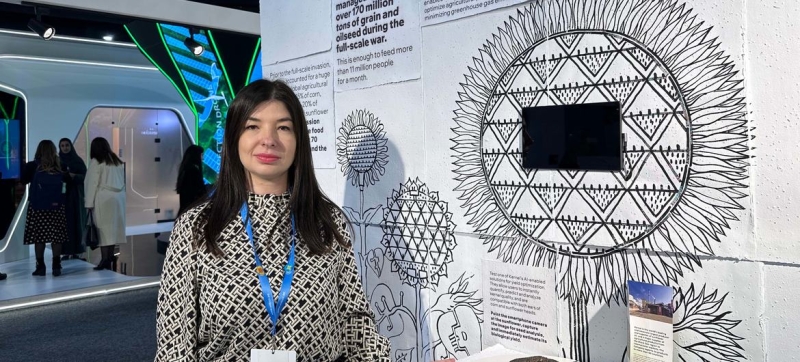
Deputy Minister of Environmental Protection and Natural Resources of Ukraine Victoria Kireeva. INTERVIEW | 1000 days of war and the ecology of Ukraine Climate and environment
The Ukrainian delegation to the UN Climate Conference currently taking place in Baku is headed by Deputy Minister of Environmental Protection and Natural Resources Victoria Kireeva. UN News Service spoke with her about the conditions in which Ukraine is marking the tragic date – a thousand days since the start of the full-scale war – and how the conflict has affected the country’s ecology.
UN News Service: Tell me, how have these 1000 days of war affected the nature, the ecology of Ukraine?
Victoria Kireeva: Firstly, this war has affected the fate of our people, their lives and, of course, the environment of Ukraine. Ukraine is the most mined country in the world. About 30 percent of our territory is mined and requires cleaning.
As a result of Russian aggression, the country’s environmental losses to date amount to 65 billion euros. Three million hectares of forest have been damaged, and this damage is estimated at 25 billion euros.
UN News Service: How Ukrainian farmers live in these conditions today? Ukraine has always been called the “breadbasket” in the country where we all lived together…
Victoria Kireeva:After the tragedy that occurred at the Kakhovka hydroelectric power station, our farmers in such areas as Mykolaiv, Kherson, Dnipropetrovsk regions are asking for help, and this year has been very difficult for them. In addition, this summer the temperature broke all records. We feel the climate change, and then there is the war. These are already two challenges.
Today we have a huge need for water, because significant water resources have been lost. Farmers are creating new melioration systems, but this also requires water. In this matter, they are now being helped by local and central authorities. Strategies for adaptation to climate change before and after the war are being developed.
Another challenge is the cleanup of territories that have been liberated from occupation. They are all mined, and until they are cleared of mines, they cannot be used for farming. But our farmers are very resourceful, they were able to sow mined territories with honey flowers and collect honey from these fields. Yesterday we presented this honey here at the conference, but unfortunately, there is nothing left, because it was taken very quickly.
I want to add that this year we went to the conference first of all to show the whole world that we are reliable partners. We tell how we are restoring our energy, how we are restoring agriculture, our economy – under constant shelling. We understand that everyone is tired of the war in Ukraine, and a thousand days is a lot. But we are even more tired, and therefore we need the world’s help to stop this war.
